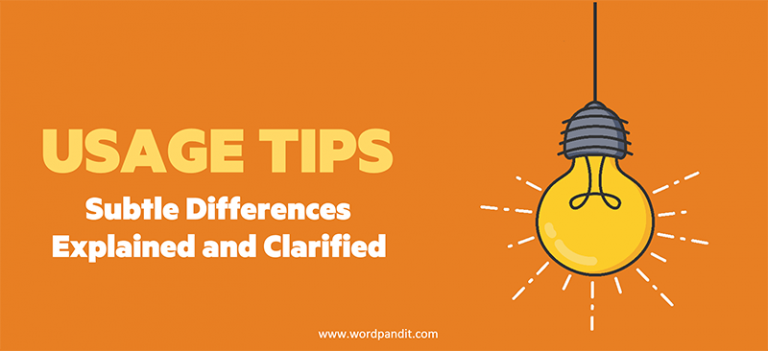Capable vs. Culpable: How to Avoid a Misstep ✨
Ever get stuck trying to figure out if someone is capable 💪 or culpable 🚨? 🤔 No worries, you’re not alone! These two words may look alike 👀, but their meanings couldn’t be more different—and mixing them up can lead to some pretty awkward misunderstandings. Imagine congratulating someone for being “culpable” 🫢 of a great achievement. Oops! 😅 Let’s make sure you get these right ✅ once and for all. Understanding the difference between these words will not only help you avoid embarrassing mistakes 😳 but also make your communication clearer and more effective. 🗣️✍️
Breaking It Down: Capable 💪
- Definition: Capable means having the power, skill, or ability to do something. 🛠️
- Pronunciation: KAY-puh-buhl 🍿
- Etymology: This word traces back to the Late Latin word capabilis, which means “able to grasp.” 🤲 It’s about being competent and able. The Latin root “capere” also means “to take or seize,” ✊ which ties into the idea of someone being ready to take on a task.
- Usage Examples:
- “She is capable of leading the entire project.” 🌟
- “With the right training, anyone is capable of mastering new skills.” 📚
- “The athlete is capable of breaking the world record 🏅 with enough practice and dedication.” 🏋️♂️
- Synonyms: Able, competent, skilled, proficient, adept. ✅
- Antonyms: Incapable, unskilled, powerless, inept, inadequate. ❌
Breaking It Down: Culpable 🚨
- Definition: Culpable means deserving of blame or responsibility for a wrong. ⚖️
- Pronunciation: KUHL-puh-buhl 🚑
- Etymology: Culpable comes from the Latin culpabilis, meaning “worthy of blame.” 🛑 Think “culprit” when you hear it—someone who’s in trouble. 😟 The Latin root “culpa” means “fault” or “blame,” which makes it easy to remember that culpable has a negative connotation. 🚫
- Usage Examples:
- “The manager was found culpable for the financial losses.” 📉
- “He may not be directly responsible, but he is certainly culpable for the oversight.” ⚠️
- “The driver was deemed culpable for the accident due to reckless driving.” 🚗💥
- Synonyms: Blameworthy, guilty, at fault, responsible, liable. ⚠️
- Antonyms: Innocent, blameless, faultless, exonerated, absolved. 🙌
Capable vs. Culpable: What’s the Difference? 🤷♀️🤷♂️
The key difference is positivity ✨ versus blame. 😞 If you’re capable 💪, you’re ready to do something great. If you’re culpable 🛑, you’re probably in some hot water for a mistake. 🥵 Here’s a quick example to illustrate:
- “The firefighter was capable of rescuing everyone in the building.” 🚒🔥
- “Unfortunately, the landlord was culpable for not ensuring the fire alarms were working.” 🚨🚫
In other words, capable is about potential and ability, often linked to a positive action or quality, whereas culpable is about fault and blame, indicating a mistake or wrongdoing. ❌
Contextual Usage 📝
- “She was found capable of executing the plan flawlessly, while her partner was culpable for the errors made during preparation.” 💼✅❌
- “The student was capable of solving the complex math problem 🧮, but the teacher was culpable for not providing enough guidance.” 📊✖️
Memory Aid: How to Keep Them Straight 💡
Think of capable as someone who can do something. It starts with a “C” — just like “Can.” Meanwhile, culpable is related to a “culprit” 🕵️♂️—someone who’s at fault. Easy peasy, right? 😉 Another way to remember is that culpable has “culp” in it, which sounds like “culprit,” and culprits are the ones who are blamed for something. 🚨Related Confusing Word Pairs 🔄
Now that you’ve mastered capable and culpable, why not tackle other tricky pairs? Try affect vs. effect 🌊, eminent vs. imminent 🕒, or imply vs. infer 🗣️ next! 📖✨ Each of these pairs can be equally confusing, but once you understand the subtle differences, your writing and speaking will be much clearer. 🗣️✍️
Wrapping It Up 🎁
Capable means being competent 💪, while culpable means being at fault. 🚨 Remember, one is praise-worthy, and the other… well, maybe not so much. 😅 You’re now capable of using these correctly and no longer culpable for any mix-ups! 😊 Understanding these words can also enhance your ability to express nuances in both spoken and written communication. 📝 Whether you’re complimenting someone’s abilities or assigning blame, choosing the right word makes all the difference. 💯✨













